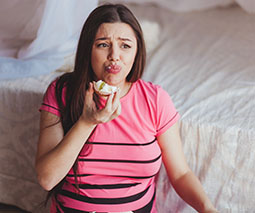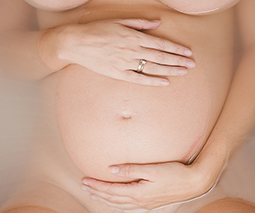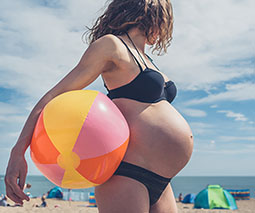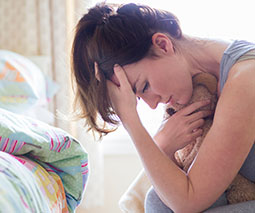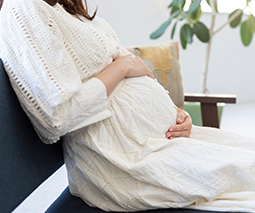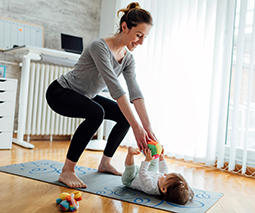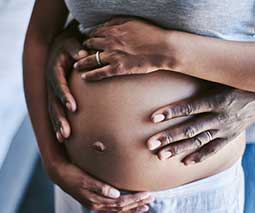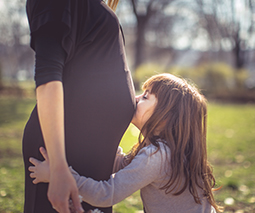“Cruel and savage sickness” Adele’s must-read post about postpartum psychosis
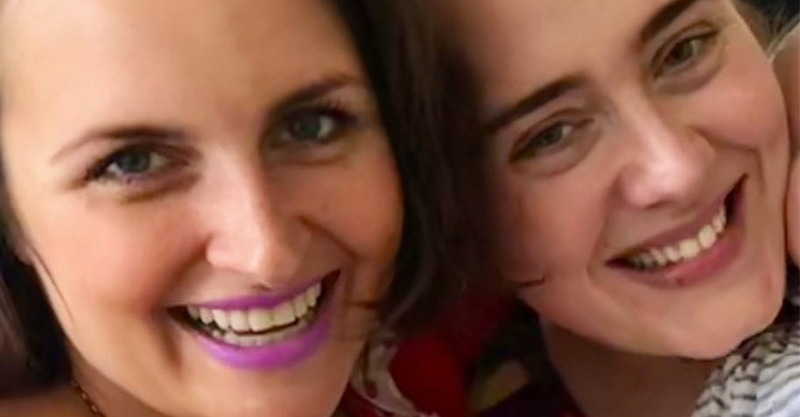
Singer Adele’s best friend Laura has opened up about her harrowing experience with postpartum psychosis, the besties joining forces to raise awareness of this frightening mental health condition.
Content warning: This post discusses depression and suicide. If you or someone you know is showing signs of postnatal psychosis, please contact the PANDA helpline on 1300 726 306. In the event of an emergency, please call 000.
“Mamas, talk about how you’re feeling”
Adele has helped to share details of what happened to Laura after her baby was born, the pair hoping to help other women better identify the signs of psychosis – and seek treatment.
“This is my best friend. We have been friends for more of our lives than we haven’t,” Adele wrote in an Instagram post. “She had my beautiful godson 6 months ago and it was the biggest challenge of her life in more ways than one. She has written the most intimate, witty, heartbreaking and articulate piece about her experience of becoming a new mum and being diagnosed with postpartum psychosis. Mamas talk about how you’re feeling because in some cases it could save yours or someone else’s life.”
Adele linked across to Laura’s account of what happened to her after he wee boy was born. It’s as lengthy as it is important.
“This cruel and savage sickness”
“Since having my baby boy in February this year I’ve been suffering from and battling against postpartum psychosis,” Laura writes. “A rare and unpublicised illness that affects 1 in a 1000 women and is seen as a medical emergency (don’t worry I had never heard of it either until it tried to ruin my life).”
“In my case it was built upon post natal depression and exhaustion and escalated into a phase of what I can only describe as hell; mania, mood swings, insomnia, delusions, paranoia, anxiety, severe depression with a lovely side order of psychosis.”
“My pregnancy was a dream, I was totally prepared to be unprepared and have no history of mental illness and yet this cruel and savage sickness completely and unexpectedly swallowed me, smashed me and my family against the rocks.”
From one extreme to another
Laura says after a pretty brilliant pregnancy, her labour was the exact polar opposite. Delivering her baby seemed near impossible. She thought she might die or lose her baby and an emergency c-section revealed not only a very underweight baby but a failing placenta.,
It’s possible that the trauma of labour, delivery and the demands of an incredibly hungry newborn triggered Laura’s mental health crisis, her doctor now suggests.
Hospitalised for five days postpartum to recover from labour and delivery, Laura says it quickly all became too much.
“There was no respite. I just remember thinking- what the hell have I done?”
“I’m not okay”
Desperate to be discharged and head home, things got even more challenging on what she thought would be familiar cosy turf.
“The second I got home and into bed I was drenched in this terrifying overwhelming sense of fear and dread. Like that Sunday night before school feeling times a million. I felt like I was dying. My breath was short and tight, my heart was pounding out of my chest and my stomach churned. I turned to my partner Hugo and said ‘something’s not right with me, I don’t know what it is but I’m not ok.’”
While Laura knew something was “not ok” she says she didn’t think she was depressed.
“I could still appreciate the crisp white blanket of snow outside, the way it silenced the world and I still looked forward to gobbling down a salty cheese toastie, then I realised that I knew absolutely nothing about depression because what the hell does depression even feel like?”
Not the ‘baby blues’
Hoping that time would heal all wounds, she pushed on but felt more and more isolated, unable to express just how dire things were getting.
“I didn’t recognise myself and I felt like an intruder in my own life, like a fraud and a complete failure.”
What friends and family thought was routine ‘baby blues’ was something much more serious.
“I was a ticking time bomb waiting to explode. Sleepless nights turned into a mania where I felt like I was doing everything in frantic fast forward.”
Read more about postpartum mental health:
- Beyond the baby blues: The dangerous mental illness that is postnatal psychosis
- This Australian treatment for postpartum psychosis is 100 per cent successful
- A symptom of postpartum depression that isn’t talked about
“I was completely terrified”
Laura says her family rushed to her aid, moving in and trying to help care for her and the baby. As things went from bad to worse, Laura says she tipped out of reality and into paranoia.
“My psychosis took a dark turn. I still can’t exactly work out what exactly happened or what form it took on, all I know is I was completely terrified, lost, confused and scared for myself and my son and that I didn’t trust ANYBODY – I even accused Hugo of kidnapping our baby.”
It was at this point that her family escalated her care seeking crisis care from mental health professionals. On what Laura describes as the worst night of her life, she was hospitalised.
“I was hospitalised for 2 weeks away from my son, bleeding from birth, breasts leaking milk and fully out of my head. I had no idea where I was. I forgot who I was to the point that Hugo would have to send me photos of myself and my friends and family to remind me who I was. My sister would record voice notes on my phone to try and trigger my memories.”
“We shouldn’t have to suffer in silence”
As Laura battled to reclaim her health, her partner Hugo cared for their newborn and supported her recovery.
“I was his Zombie girlfriend eating apple crumble with a plastic spoon in a hospital cafeteria yet everyday he bought our son to see me in hospital and only ever smiled and was fun and brilliant with him. Hugo’s loyalty, patience, kindness, belief in me and strength was jaw dropping. His threshold for absolute horror and chaos is gigantic. I just love him so much.”
Laura says as she began to recover, she struggled to find stories that mirrored her own. Instead, she was faced with an Insta-perfect brigade of mums whose veneer made her feel even more isolated. She hopes by sharing her own experience that others might open up about how hard having a baby can be.
“Birth and motherhood is a shock to the system and traumatic and we shouldn’t have to suffer in silence. It’s not cosy big fluffy jumpers, scrolling through Instagram and tubs of ice cream. Pregnancy is like being an oven making the most precious important cake in the world and everybody is looking through the little glass window licking their lips waiting for the cake to come out and once the cake comes out everybody cheers and runs off to eat it and the oven is left and forgotten about, turned off,” Laura writes.
“Now with the support of my family, an incredible psychiatrist, medication (which I really hated the idea of taking but now recognise them, for me, as necessary and I am grateful to whoever invented them) and psychotherapy I am healed and recovering more and more each day. I am happy, confident and strong. I am myself.”
“Mental health is no joke”
Laura urges mums who might be navigating mental health challenges during pregnancy or after the birth of their baby to seek support.
“Yes, you do have to put your child first but I had to prioritise getting better so that I could be a good mum and that meant doing whatever I needed to do to get well. Mental health is no joke, I had a peep into another world and let me tell you it was a scary place, ” Laura says.
“Take care of yourselves, be patient with others and above all be kind. If anybody is suffering don’t delay talking to somebody, it can escalate and easily get out of hand … It’s nothing to be embarrassed about, it’s a chemical imbalance, an avalanche of hormones and it is NOT your fault.”
“Ten percent of women suffer from depression after giving birth and only ten percent of those women are treated for it. You don’t have to brave it alone. You don’t have to act like a hero, you already are one.”
If you or someone you know is showing signs of postnatal psychosis, please contact the PANDA helpline on 1300 726 306, or for more information visit their website at www.panda.org.au. In the event of an emergency, please call 000.
